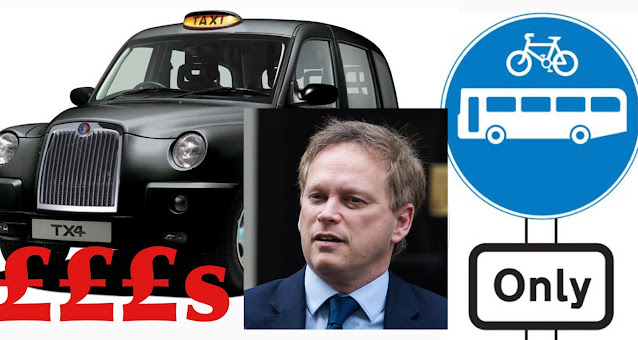Transport secretary Grant Shapps has appeared to rule out the prospect of London retaining the £500 million in Vehicle Excise Duty (VED) raised annually in the capital – a key City Hall proposal in the latest negotiations over further government support for Transport for London.
Shapps’ statement, made at yesterday’s transport questions session in the House of Commons, came despite the minister previously, saying that he “looked forward” to a new TfL funding settlement with “London given more control over key taxes so it can pay more costs of the transport network itself.”
In an exchange with Ilford South MP and shadow transport minister Sam Tarry, Shapps refused to commit to considering the VED proposal.
“The government has provided £3.3 billion and counting to TfL to keep it afloat,” he said. “Now [Tarry] wants to give the Mayor collection of Vehicle Excise Duty. In addition, the Mayor is already planning an over £31 increase in Council Tax, and now he’s got this new boundary tax – £3.50, £5.50, we wait to hear – to enter London. Where does it end Mr Speaker?”
Londoners contribute £500 million out of the £6 billion raised annually by VED, which goes towards Highways England investment in its national “strategic” road network, but none of that money is currently allocated to London, where almost all major roads are the responsibility of TfL – prompting Khan to accuse the government of failing to “play fair” by Londoners.
Retaining VED cash is a centrepiece of Khan’s current pitch for funding for TfL, contained in TfL’s financial sustainability plan produced as a condition of the government’s current £1.8 billion bailout for the beleaguered transport authority, which runs until April.
And with TfL currently seeking some £3 billion in government funding in 2021/22 as the Covid lockdown continues to hit fares income, the Mayor has warned of the prospect of daily charges for all drivers entering London, if VED retention is not agreed.
In a report for next week’s TfL board meeting, transport commissioner Andy Byford confirms that a new “Greater London boundary charge for non-residents” is being actively investigated.
“A £3.50 daily charge, which would apply once a day regardless of how many times the boundary was crossed, would help further contribute to a green recovery for London by reducing the number of vehicles entering the capital and could raise around £500m every year,” he says.
The boundary charge would apply on top of any existing or planned charges such as the Congestion Charge and the ULEZ charge, with options for “a higher charge for more polluting vehicles, options for different charging hours and days, and potential discounts and exemptions”.
The figure of £5.50 mentioned by Shapps refers to an additional £2 per day that would be levied on the most polluting vehicles.
The VED option is explained in full in the TfL plan, which was submitted to Shapps’s department on 11 January.
TfL is also considering a possible “sustainable travel fund for boundary boroughs, which could respond to local transport priorities and help provide better alternatives to car use,” the TfL board report says. It confirms that any boundary charge would be subject to extensive consultation.
While the TfL financial stability plan assumes £500 million income either from VED or a boundary charge, Khan told the London Assembly yesterday that the charge was “not an option” he wanted to put forward. “I’m hoping this will never become a proposal,” he said. Last week, the Mayor accepted a challenge from Tory Assembly Member Keith Prince to make a cross-party appeal for the VED option.
But Shapps’ rebuff to the VED plan appears to increase pressure on Khan, who has already been forced to propose a £15 a year hike in his share of Council Tax to help pay for continuing to provide free travel for under-18s and 60-65-year-olds, which the government is refusing to fund.
With the mayoral elections still scheduled for May 6, talks with the government, currently working to a 22 March deadline, look likely to go to the wire, with TfL’s future at stake. Khan confirmed yesterday to the Assembly that there has been “no substantial progress” on negotiations.
Source : OnLondon.


No comments:
Post a Comment